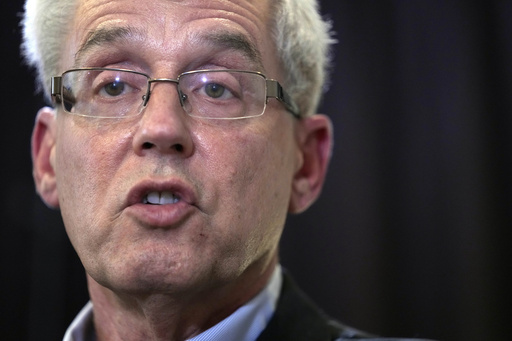
In a significant ruling on Tuesday, a Japanese appeals court upheld the conviction of Greg Kelly, a former senior executive at Nissan, who was found guilty of aiding Carlos Ghosn, the former Chairman of the company, in concealing his income. The court also dismissed prosecutors’ efforts to challenge Kelly’s acquittals on other charges.
Kelly, who served as an executive vice president and is also a lawyer, was convicted in 2022 concerning his actions during just one of the eight years in which authorities alleged he and Ghosn downplayed the chairman’s earnings. He received a six-month sentence that has been suspended for three years, allowing him to return to his home in Tennessee. He did not participate in the hearing.
His lawyer, Yoichi Kitamura, announced plans to take the case to the Japanese Supreme Court. Meanwhile, prosecutors, who aimed to reverse Kelly’s acquittal on charges relating to the remaining seven years, did not provide any comments. Both parties are permitted a window of 15 days to appeal this latest decision.
Expressing his disappointment in a phone interview, Kelly pointed out that there were still favorable aspects to the overall ruling. “This is not the end. And I’m confident that we will prevail, as we will appeal this decision,” he asserted. This ruling extends the ongoing legal struggle surrounding the allegations against Ghosn.
Carlos Ghosn, who notably became Nissan’s chairman after a successful tenure with its partner Renault, was once celebrated for revitalizing the automaker. However, complicating his legacy were tensions rooted in his unconventional foreign management style within Japan’s traditional corporate culture. Following a significant pay cut imposed by the board, allegations arose suggesting he colluded with Kelly and other officials to secure secret compensation deals.
Both Ghosn and Kelly faced arrest in late 2018 as a result of a synchronized operation when both traveled to Japan for Nissan meetings. Ghosn was charged with underreporting his earnings and breach of trust but famously fled to Lebanon while on bail in December 2019, reportedly hidden in a box bearing music instruments. His accomplices, two Americans, were extradited, found guilty, and served nearly two years in Japan. Ghosn, maintaining his innocence, is unlikely to face trial since there is no extradition treaty between Lebanon and Japan.
Kelly has consistently claimed that his actions were aligned with Nissan’s best interests, arguing that the maturity of the concerns warranted resolution in a corporate setting rather than a legal one. Additionally, he faces a civil lawsuit from Nissan, seeking 4 billion yen (approximately $26 million) in damages. Nissan, headquartered in Yokohama, has indicated that the lawsuit remains active but has refrained from providing further comments.
Nissan is currently grappling with financial difficulties, experiencing losses as sales decline, and is in discussions with Honda Motor Co. regarding the potential establishment of a joint holding company. The fallout from the Ghosn affair has significantly highlighted the challenges of building effective international business collaborations in Japan, where less than 1% of criminal cases lead to innocent verdicts, as reported by the Japan Federation of Bar Associations.

